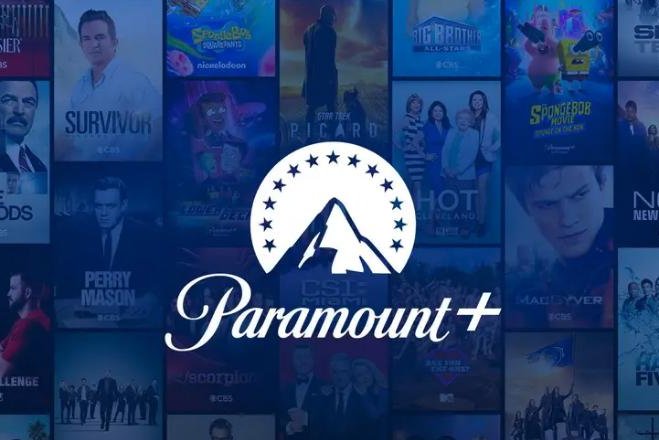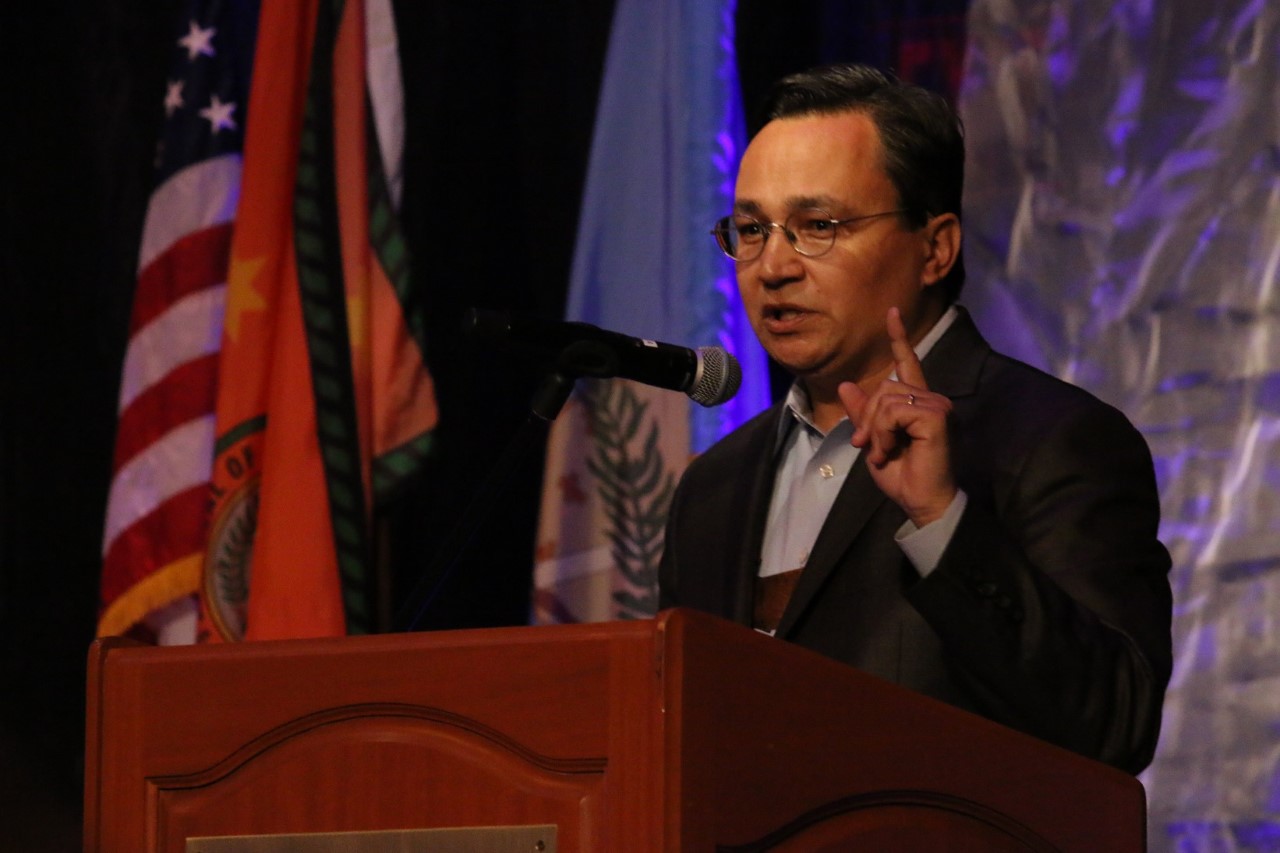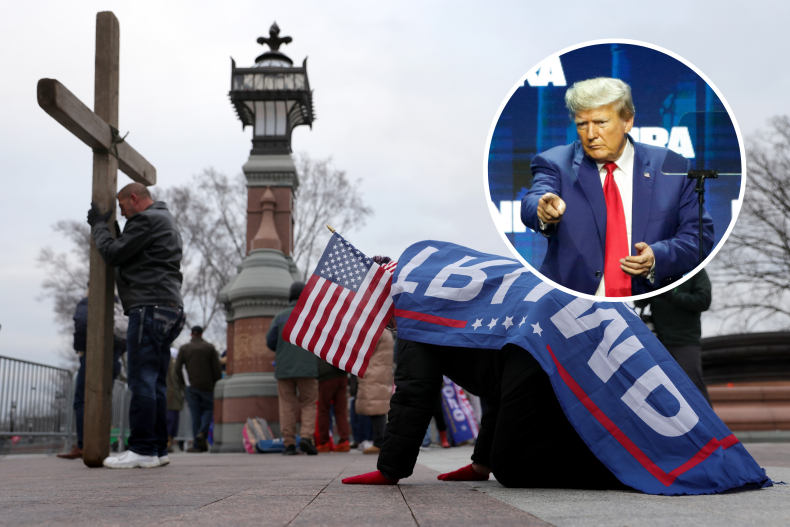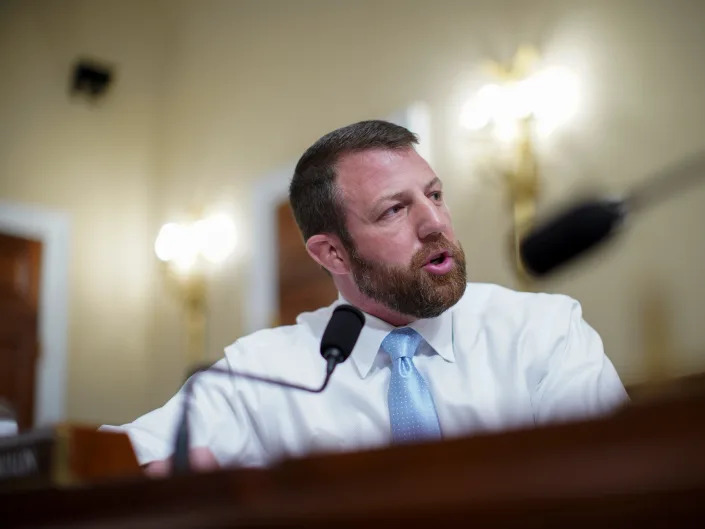Despite the dangers, early humans risked life-threatening flintknapping injuries
IMAGE: METIN EREN, PH.D., ASSOCIATE PROFESSOR AND DIRECTOR OF ARCHEOLOGY AT KENT STATE UNIVERSITY, DEMONSTRATES FLINTKNAPPING. view more
CREDIT: KENT STATE UNIVERSITY
Every day, hundreds of stone artifact enthusiasts around the world sit down and begin striking a stone with special tools attempting to craft the perfect arrowhead or knife. This craft is known as flintknapping, and for most, it is a skilled hobby or art form that was thought to occasionally require bandages or stitches. However, new research suggests flintknapping is far more dangerous than previously understood. And for early humans who were without the modern conveniences of hospitals, antibiotics, treated water and band-aids, a more severe cut could get infected and be life-threatening.
“Knapping injuries were a risk past peoples were willing to take,” said Metin I. Eren, Ph.D., associate professor and director of archaeology at Kent State University.
Eren and his colleague Stephen Lycett, Ph.D., associate professor of anthropology at the University at Buffalo, both also flintknappers themselves, were curious about knapping injuries and risks. More than 10 years ago, they began discussing a study they wanted to conduct that involved surveying modern flintknappers and documenting their injuries systematically.
“We’ve known for a long while that flintknapping can result in injuries, but its never been quantitatively assessed on a widespread level,” Eren said. “What is the frequency of injury? How bad can flintknapping injuries get? For that sort of thing, you need a large sample size.”
They found Nicholas Gala, at the time a Kent State undergraduate anthropology major working in Kent State’s Experimental Archaeology Lab, who was looking for a senior honors thesis project.
Gala conducted the survey that led to his first authored article in North America’s flagship archaeology research journal, American Antiquity. They received survey responses from 173 modern flintknappers who described their wide-ranging injuries. The article, “The Injury Costs of Knapping,” was also co-authored by Eren, Lycett and Michelle Bebber, Ph.D., assistant professor in the Department of Anthropology at Kent State.
“Nick’s work on this project has been fantastic,” Lycett said. “Successfully coordinating a number of different project elements always requires considerable skill and organization. The number of parts in this project, from coming up with a questionnaire to reaching out to many flintknappers and then collating and thinking about all the data, was a difficult task.”
Gala earned his Bachelor of Science in Anthropology at Kent State in 2022 and is now pursuing a master’s degree at the University of Tulsa, where he received two fellowships and is currently studying lithic technology.
Flintknapping and Injuries
Flintknapping is the method of breaking, flaking and shaping stone tools, such as points for arrow tips or sharp blades for an axe or knife. Archaeological evidence for knapping goes back more than 3 million years.
“People like to say, ‘You are going to cut yourself while learning to flint knap, even if you are an expert flintknapper,’ so we wanted to know how dangerous it actually is,” Gala said. “What are the most severe injuries that people have? How can we relate that to past people?”
The researchers learned that knapping is far more dangerous than they previously imagined. Among some of the most severe injuries reported by flintknappers included running a flake across their bone like a wood planar, cuts deep into the periosteum of the bone, and the need for a tourniquet after piercing their ankle with a flake. Thirty-five people surveyed said they have had small stone flakes fly into one of their eyes. The researchers also shared a historical account of William Henry Holmes who disabled his entire left arm from flintknapping back in the late 1890s. Several grislier examples are reported in the open-access study.
“This study emphasizes how important stone tools would have been to past peoples,” Eren said. “They literally would have risked life and limb to make stone tools during a period without band-aids, antibiotics or hospitals. But despite those injury costs, past peoples made stone tools anyway – the benefits provided must have been immense.”
“What, to us, might seem a minor inconvenience, could in the past have proven fatal if the wound became infected and prevented an individual from effectively gathering food, water and undertaking other essential activities,” Lycett said. “For those taking care of small infants, not only would their life be in jeopardy, but the life of these infants would also be in the balance. The costs of injury in the ancient world were magnified. These are exactly the kinds of costs that evolutionary models will need to take account of, and our study is a step toward that.”
Bebber collaborated with Gala on how to best visualize and report his data and developed a color-coded figure, which illustrates that injuries are not just limited to the hands. Injury frequency varies, and there are injuries that occur on the entire body, including flintknappers’ feet, legs and torso.
“The eye injuries are the most dangerous from my perspective, simply because they seem to be common and could result in loss of sight, which would significantly impact the life of the knapper,” Bebber said. “Stone tools were vital to their daily activities and overall survival. I think overall they were used to a more dangerous lifestyle and also would have had their own ways of treating injuries.”
Social Learning
The researchers were also interested in more accurately considering how injury risks might be incorporated into ongoing debates about the likelihood of ancient species (Homo erectus, Homo habilis) engaging in social learning (to teach and prevent injuries) when learning to make stone tools.
“Social learning involves directly copying the outcomes or actions of a more skilled individual rather than learning everything by yourself through trial and error,” Lycett said. “We know from studies of animals and humans that social learning, rather than learning individually, is more likely when there is an increased risk or cost to learning alone. The injury risks involved in knapping are exactly the kind of activity that would have made learning from a skilled individual more likely since it would help reduce the risks associated with individual learning.
“Stone tools are the best evidence we have to track social learning early in our evolution because they withstand the passage of time,” Lycett continued. “Other skills may have been socially learned deep in prehistory, but evidence for those behaviors is not so well preserved.”
Additional Information
For more information about Kent State’s Department of Anthropology, visit www.kent.edu/anthropology.
Kent State holds the esteemed distinction of being one of only five institutions in Ohio to be recognized as an R1 top-tier research university by the Carnegie Classification of Institutions of Higher Education. For more information about research at Kent State, visit www.kent.edu/research.
A color-coded figure illustrates that flintknapping injuries are not just limited to the hands.
CREDIT
Kent State University
Photo Caption:
Metin Eren, Ph.D., associate professor and director of archeology at Kent State University, demonstrates flintknapping.
Illustration Caption:
A color-coded figure illustrates that flintknapping injuries are not just limited to the hands.
Media Contacts:
Jim Maxwell, jmaxwel2@kent.edu, 330-672-8028
Metin Eren, meren@kent.edu, 330-672-4363
JOURNAL
American Antiquity
METHOD OF RESEARCH
Survey
SUBJECT OF RESEARCH
People
ARTICLE TITLE
The Injury Costs of Knapping
ARTICLE PUBLICATION DATE
25-May-2023













